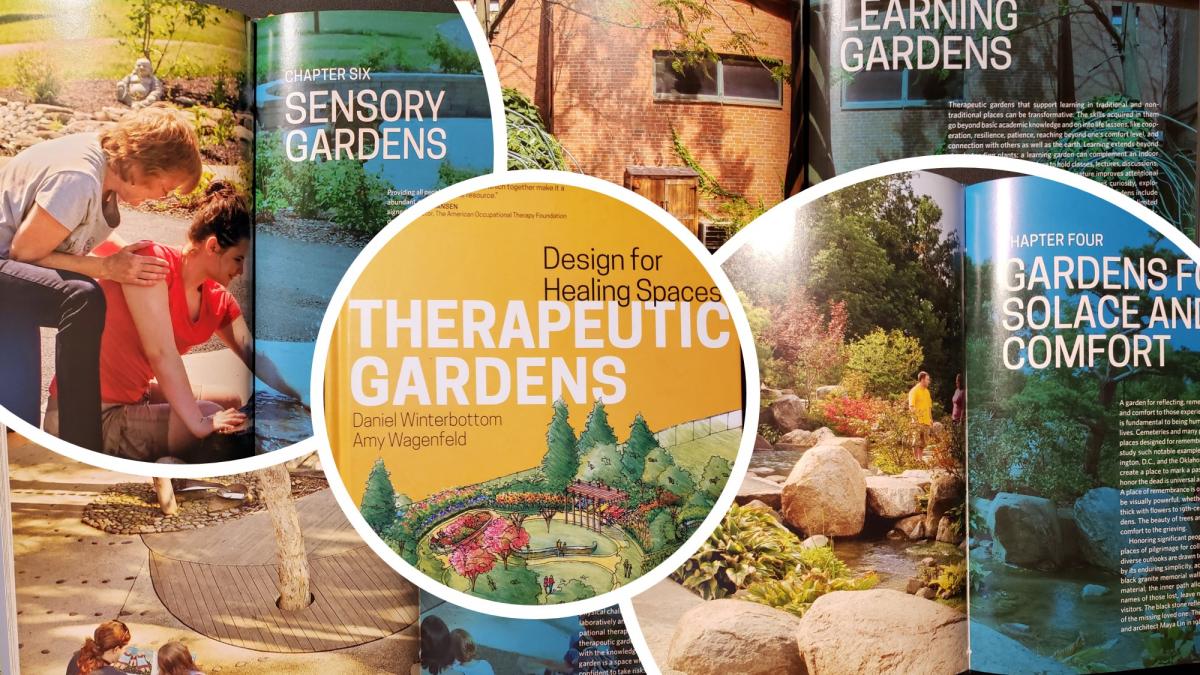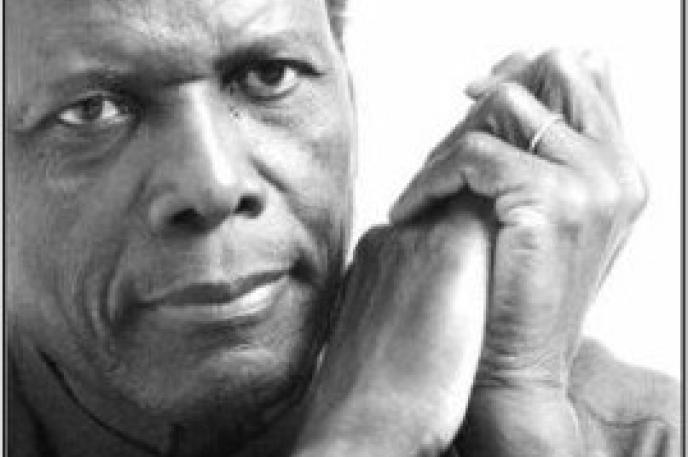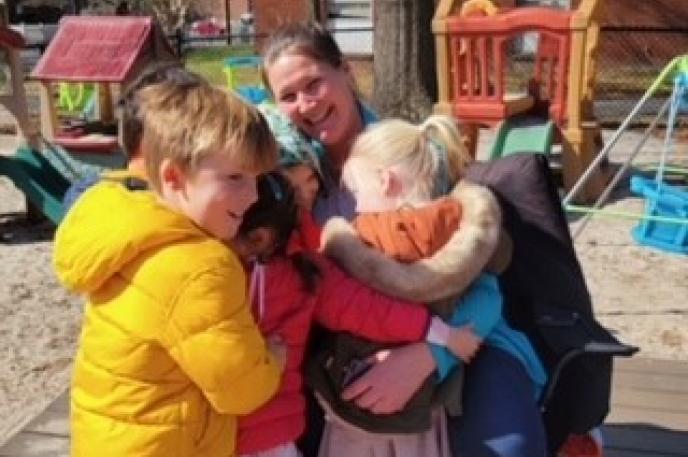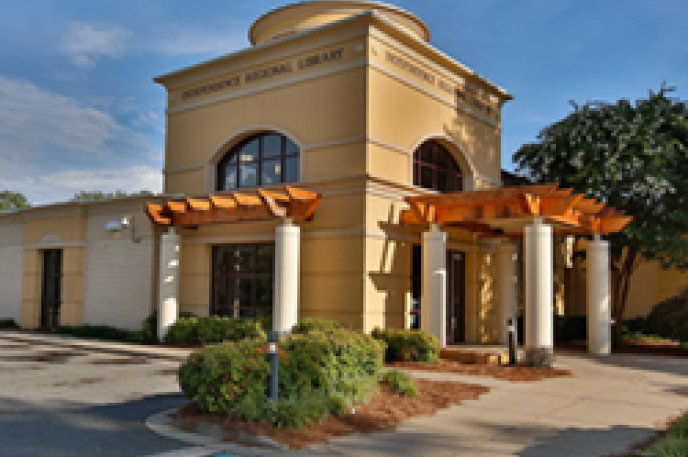
Get to know the Independence Regional community
February 23, 2022
Independence Regional Library can be found at the corner of Conference Drive and Monroe Road. We are proud to serve a diverse community, with many nearby schools including East Mecklenburg High School, Idlewild Elementary School, McClintock Middle School, Greenway Elementary School, Rama Road Elementary. We also serve families with young children and individuals from around the world who call Charlotte home. Visit us and you will discover a wide range of programs offered to people of all ages. We have a diverse staff who offer a variety of language learning programs, an excellent group of children’s storytellers doing amazing work with babies and school age children, and we have many skill-building programs offered to teens to help them prepare for their future. Come and meet our library staff members who care very much about their work and the people they serve.
 If you like the outdoors, you will surely enjoy getting off the beaten path to stroll down local Greenways, McAlpine Creek and Campbell Creek. Experience wildlife and a fishpond available with stocked fish and accessible with a fishing permit. McAlpine Creek Park’s entrance is on Monroe Road near Village Lake Drive. Another fun outing for families with young children is at Grier Park. StoryWalks, provided by Charlotte Mecklenburg Library, is a unique storybook adventure for children and their families found within the park’s natural setting. This encounter is a lively story outside the pages of a traditional book.
If you like the outdoors, you will surely enjoy getting off the beaten path to stroll down local Greenways, McAlpine Creek and Campbell Creek. Experience wildlife and a fishpond available with stocked fish and accessible with a fishing permit. McAlpine Creek Park’s entrance is on Monroe Road near Village Lake Drive. Another fun outing for families with young children is at Grier Park. StoryWalks, provided by Charlotte Mecklenburg Library, is a unique storybook adventure for children and their families found within the park’s natural setting. This encounter is a lively story outside the pages of a traditional book.
Near our branch is the Time Out Youth Center who welcome all who enter. It’s a special place for young people to feel a sense of belonging and community whether they identify as lesbian, gay, bisexual, transgender, queer, questioning, a straight ally – or just dislike being labeled at all. They offer a safe space and always respect the journey of each individual youth and young adult. Time Out Youth works to teach, lead discussions and workshops and gives resources to schools in the Charlotte area and surrounding counties.
Another wonderful organization making a difference in our community are the Monroe Road Advocates (MORA). They are a huge source of support in creating public art, hosting community workshops and so much more. MORA is fueled and supported by a group of neighbors and stakeholders that operate in volunteer roles. You are encouraged to visit this area and enjoy the sights, sounds, food and experiences!
 Our community also has a lot of resources and organizations that serve refugees and immigrant families. The staff at Carolina Refugee Resettlement Agency embrace refugees and recognize their troubling experiences. The goal is to ease the transition into a new country while respecting people’s need to remember their roots, cultures and traditions left behind back home. At Refugee Support Services, they provide a multitude of programs to help refugees who’ve chosen to settle in Charlotte. Families and individuals can come and partake in workshops, learn about nutrition, cooking, home-buying, voting clinics, financial literacy, family first-aid, personal hygiene, college prep/admissions and more.
Our community also has a lot of resources and organizations that serve refugees and immigrant families. The staff at Carolina Refugee Resettlement Agency embrace refugees and recognize their troubling experiences. The goal is to ease the transition into a new country while respecting people’s need to remember their roots, cultures and traditions left behind back home. At Refugee Support Services, they provide a multitude of programs to help refugees who’ve chosen to settle in Charlotte. Families and individuals can come and partake in workshops, learn about nutrition, cooking, home-buying, voting clinics, financial literacy, family first-aid, personal hygiene, college prep/admissions and more.
The Hindu Center of Charlotte is a temple that has served the Hindu Indian community in Charlotte for many decades, and they have a very active member base. The entire year is filled with traditional and colorful events seeped in the Hindu religion. If you love Indian cuisine, don’t miss out on their take-out services which help support the Center’s year-round activities.
And of course, if you are looking for a more diverse selection of groceries, we have the Super-G International Market. If you love food (and who doesn’t), please make time to visit Super-G International Market for a grocery store visit like no other. While their main emphasis is Asian foods, they have an abundance of products from South America, Europe, and Africa just to name of few. Think of it as an amusement park for food enthusiasts. One prominent place is their food court where the Korean soups, kimchi, Vietnamese hot steam buns and Chinese bakery treats will take your tastebuds to far-away places with no required passport.
 The staff at Independence Regional Branch has many local suggestions as well. Patchwork is a montage of colorful street art designed and created by local artists and trailblazers, MyLoan Dinh and Bunny Gregory. It’s art that adds a curiosity and playfulness to this region. You’ll find the colorful quilt-like inspired displays at several intersections along Monroe Road. Another staff favorite is Thursdays Live, a seasonal and free concert series allowing people and families to gather and enjoy local musicians — great for the whole family to connect with neighbors in an exciting atmosphere. Pictured here is a 16-foot-high sculpture project that was led by Lee Baumgarten. Public artist Leslie Scott is the designer/creator of this landmark that is a beacon in our area where we live, shop and explore. One of many ethnic restaurants is Halal Street Food. Specializing in traditional Middle Eastern dishes like kebabs, shawarma, platters, doner kebab, wraps and gyros, they also have many delicious options for vegetarians. A new restaurant, but with recipes from olden times.
The staff at Independence Regional Branch has many local suggestions as well. Patchwork is a montage of colorful street art designed and created by local artists and trailblazers, MyLoan Dinh and Bunny Gregory. It’s art that adds a curiosity and playfulness to this region. You’ll find the colorful quilt-like inspired displays at several intersections along Monroe Road. Another staff favorite is Thursdays Live, a seasonal and free concert series allowing people and families to gather and enjoy local musicians — great for the whole family to connect with neighbors in an exciting atmosphere. Pictured here is a 16-foot-high sculpture project that was led by Lee Baumgarten. Public artist Leslie Scott is the designer/creator of this landmark that is a beacon in our area where we live, shop and explore. One of many ethnic restaurants is Halal Street Food. Specializing in traditional Middle Eastern dishes like kebabs, shawarma, platters, doner kebab, wraps and gyros, they also have many delicious options for vegetarians. A new restaurant, but with recipes from olden times.
New to Charlotte? Explore other neighborhoods through the Charlotte Mecklenburg Library blog and WelcomeCLT, a digital space created for newcomers to Charlotte.
Resources:
- Independence Regional Branch – 6000 Conference Drive Charlotte, NC 28212 | 704-416-4800
- McCalpine Creek and Campbell Creek Greenway
- Grier Heights Memorial Park Storywalk - 3110 Leroy Street Charlotte, NC 28205
- Time Out Youth Center - 3800 Monroe Rd, Charlotte, NC 28205 | 704-344-8335
- Monroe Road Advocates
- Carolina Refugee Resettlement Agency - 5009 Monroe Rd Ste 100, Charlotte, NC 28205 | 704-535-8803
- Refugee Support Services - 3601 Central Ave, Charlotte, NC 28205 | 704-458-3245
- Hindu Center of Charlotte - 7400 City View Dr, Charlotte, NC 28212 | 704-535-3440
- Super-G International Market - 7323 E Independence Blvd, Charlotte, NC 28227 | 980-321-4048
- Halal Street Food - 4044 Connection Point Blvd Suite B, Charlotte, NC 28212 | 704-595-3876
---
This blog post was written by Alice Araiza, library assistant for Charlotte Mecklenburg Library.

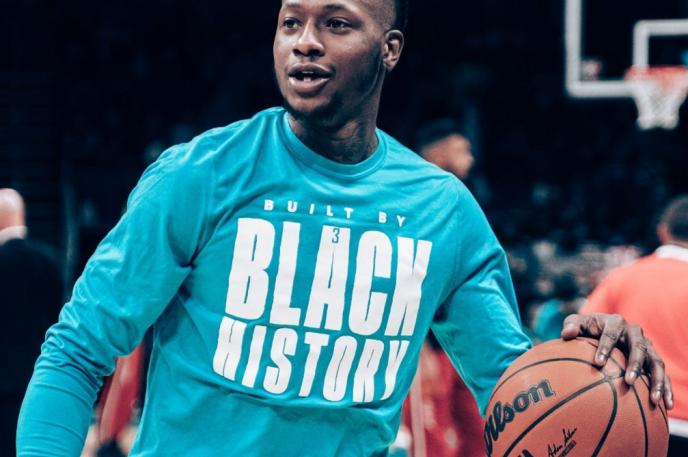
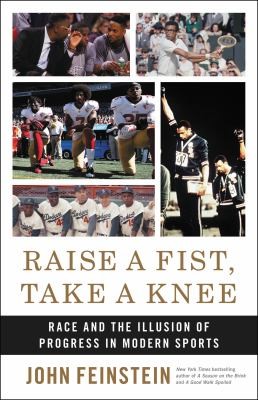 This subject is addressed in the fourth chapter of the new John Feinstein book,
This subject is addressed in the fourth chapter of the new John Feinstein book, 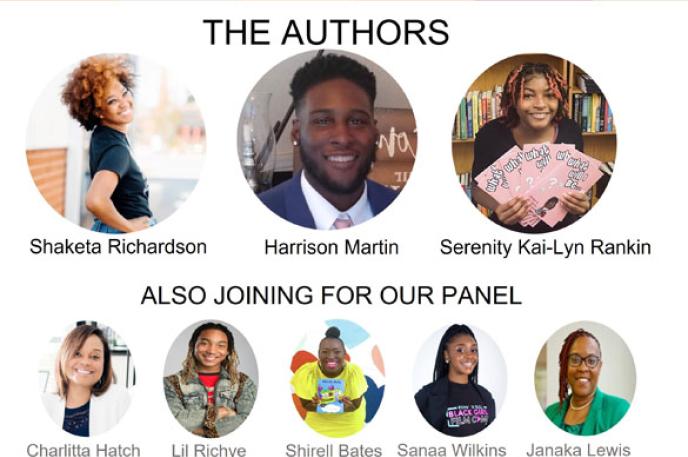
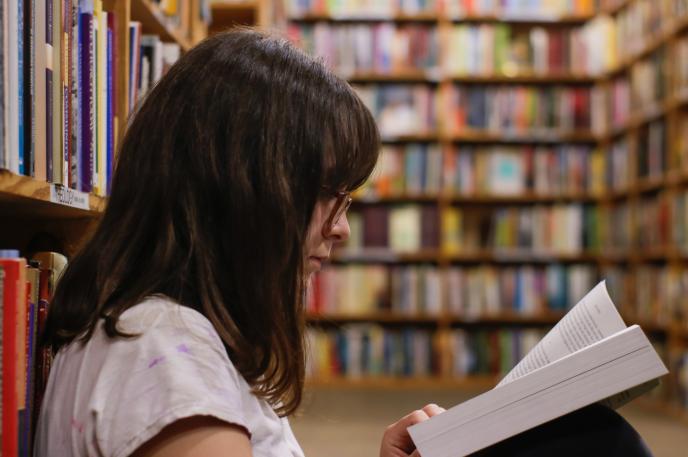
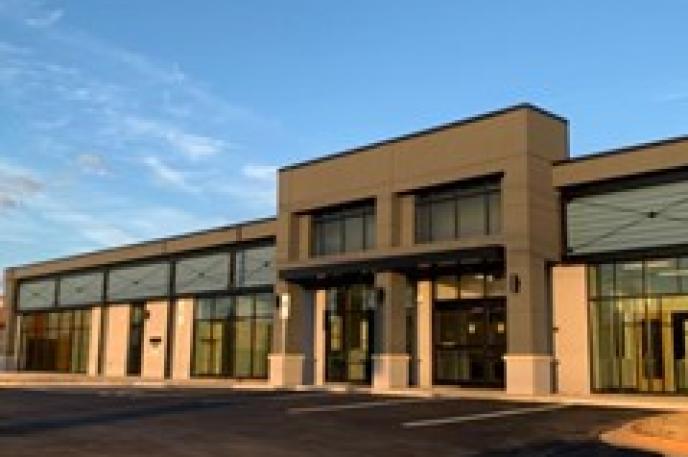
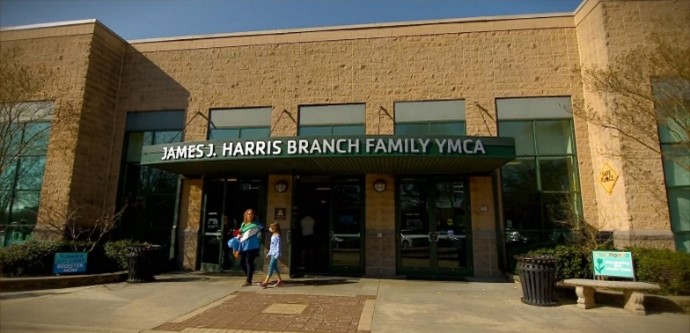 Through the
Through the 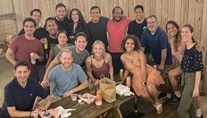 The
The 
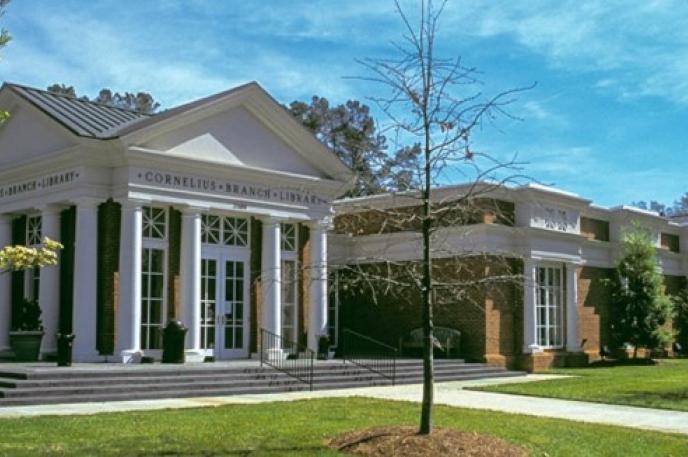
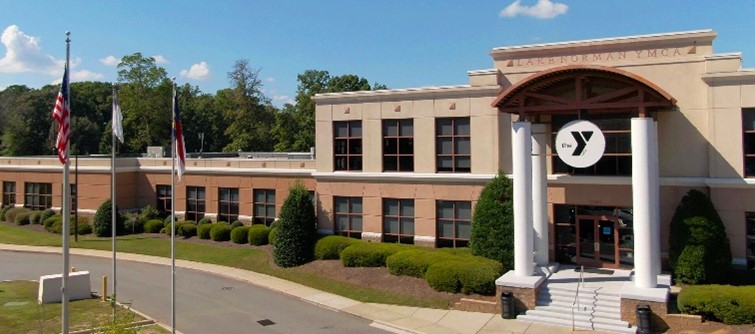 There are many fun activities in Cornelius, including the
There are many fun activities in Cornelius, including the 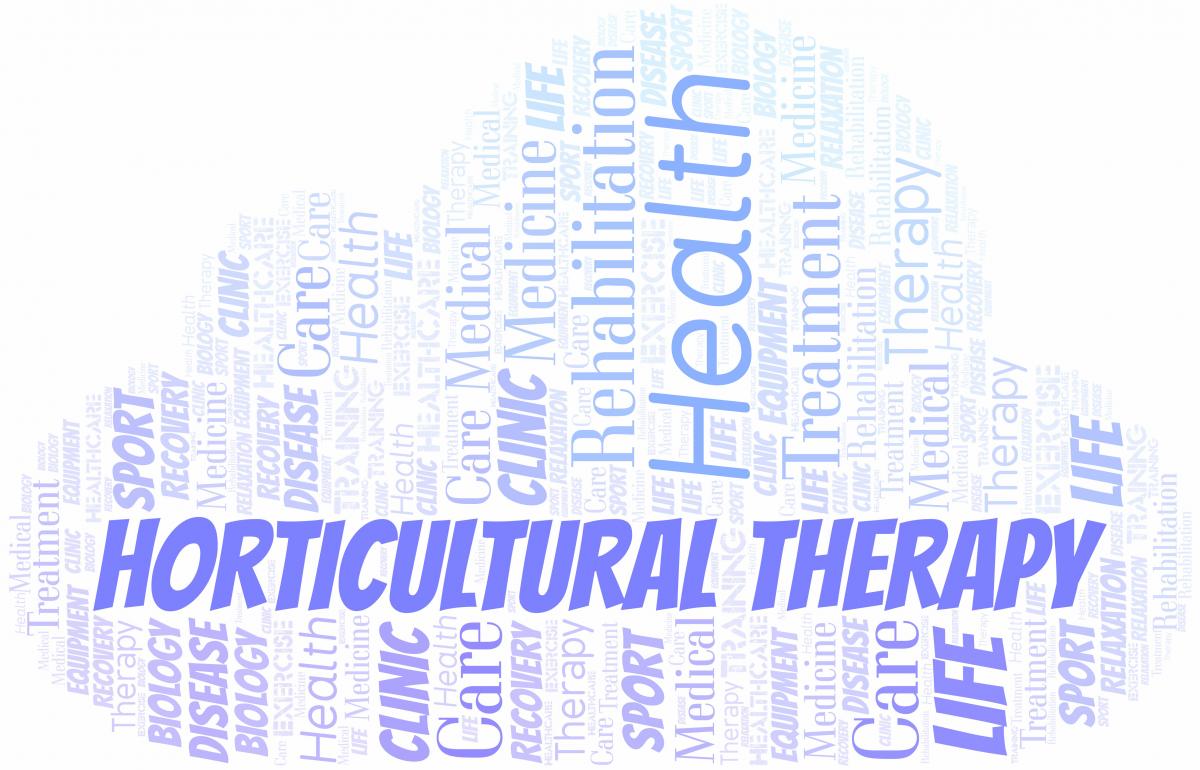
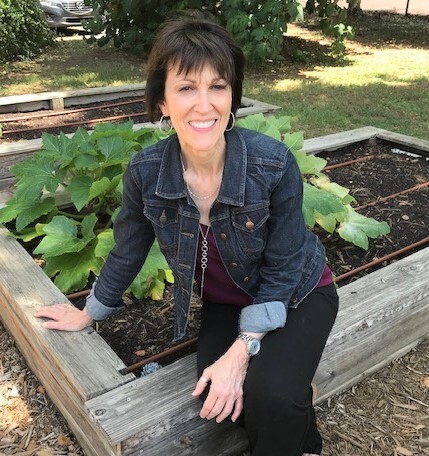 This year National Horticultural Therapy Week is March 20 through 26. On Monday, March 21, 2022, Myers Park Library and Matthews Library will co-host a virtual program with Mecklenburg Extension Master Gardener Volunteer Rita Stanley on
This year National Horticultural Therapy Week is March 20 through 26. On Monday, March 21, 2022, Myers Park Library and Matthews Library will co-host a virtual program with Mecklenburg Extension Master Gardener Volunteer Rita Stanley on